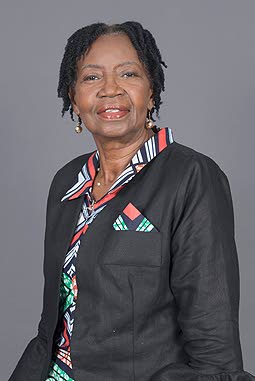India’s policy regarding the Global South exemplifies its developing position as a leader in international diplomacy. In recent decades, India has...
Vous n'êtes pas connecté
- English
- Français
- عربي
- Español
- Deutsch
- Português
- русский язык
- Català
- Italiano
- Nederlands, Vlaams
- Norsk
- فارسی
- বাংলা
- اردو
- Azərbaycan dili
- Bahasa Indonesia
- Հայերեն
- Ελληνικά
- Bosanski jezik
- українська мова
- Íslenska
- Türkmen, Түркмен
- Türkçe
- Shqip
- Eesti keel
- magyar
- Қазақ тілі
- Kalaallisut ; kalaallit oqaasii
- Lietuvių kalba
- Latviešu valoda
- македонски јазик
- Монгол
- Bahasa Melayu ; بهاس ملايو
- ဗမာစာ
- Slovenščina
- тоҷикӣ ; toğikī ; تاجیکی
- ไทย
- O'zbek ; Ўзбек ; أۇزبېك
- Tiếng Việt
- ភាសាខ្មែរ
- རྫོང་ཁ
- Soomaaliga ; af Soomaali
Rubriques :
 Maroc - NEWSDAY.CO.TT - A la Une - 27/Dec 10:02
Maroc - NEWSDAY.CO.TT - A la Une - 27/Dec 10:02
Barriers to Tobago autonomy
THE EDITOR: The path to Tobago's autonomy faces significant obstacles that go beyond legislative challenges. A deeper examination reveals complex political, administrative, and socio-economic barriers that demand urgent attention. The PNM’s Trinidadian-led leadership creates a conflict of interest, making it harder for the party’s Tobago arm to effectively represent Tobago's interests. This structure raises legitimate concerns about whether national party loyalty undermines Tobago’s advocacy during autonomy discussions. Other Tobago-based parties benefit from local leadership, allowing for more direct representation of the island’s needs. Administrative challenges are equally pressing. Our bureaucratic system, built for centralised governance, resists structural changes needed for increased autonomy. Efforts to reform government systems, redistribute resources, and establish new frameworks often face opposition or stagnation. Without decisive action, these inefficiencies will continue to hinder progress. Economically, Tobago contributes significantly to the national economy through sectors like tourism and oil and gas. Yet, the current budgetary allocation of 6.8 per cent does not reflect the island’s input. Questions about revenue sharing, tourism development, and maritime resource management remain unresolved. For autonomy to succeed, Tobago must have clear mechanisms for economic self-reliance and equitable resource distribution. Historical grievances and cultural differences between TT add to the complexity. Decades of perceived marginalisation have created mistrust, while public misunderstandings about autonomy’s implications fuel resistance. Without clear and consistent communication, these challenges will persist. A multi-faceted approach is essential: • Restructuring political representation to ensure Tobago’s interests take priority. • Establishing transparent frameworks for revenue sharing and economic management. • Overhauling administrative structures to support local governance. • Launching public education initiatives, such as community forums, to clarify autonomy’s benefits and responsibilities. • Creating platforms for honest dialogue to address historical grievances. Progress requires us to confront these barriers head-on. Specific steps, such as convening a Tobago-led autonomy task force or hosting an inter-island summit, can provide momentum. Now is the time for Tobagonians and national leaders to unite and address how party politics, administrative challenges, and historical dynamics shape this critical journey toward self-governance. KINO K SAMMY Roxborough The post Barriers to Tobago autonomy appeared first on Trinidad and Tobago Newsday.
Articles similaires
The Democratic Alliance: A Misrepresentation of South African Aspirations
The DA has misleadingly positioned itself as the ultimate solution to South Africa’s challenges. The reluctance of many South Africans to support...
Labour and lament in Tobago sugar industry
Dr Rita Pemberton PART I FROM THE 1840s to the end of the 19th century, metayage was the dominant system of labour in Tobago. The metayage/metairie...
Bangladesh’s Perilous Gamble: Risking Stability In The Bay Of Bengal By Alienating India – Analysis
The Bay of Bengal, a critical maritime hub at the intersection of South and Southeast Asia, is emerging as a theatre of strategic competition....
Self-Determination Of Tibet: A Contentious Issue – Analysis
Negotiations on self-determination of Tibet has been a contentious matter between the Tibetan ethnic minority and the PRC government. The PRC...
Syria’s Ten Post-Assad Challenges – OpEd
By Anwar Abas It took barely ten days for the regime of Syrian President Bashar al-Assad to fall. But his dramatic ousting was not simply down to...
Abusive Constitutionalism: Detection And Prevention – Analysis
By Prof. Dr. Djawed Sangdel and Damla Mesulam Constitutions are foundational documents that shape the political and legal structure of a nation....
Can Tobago afford dream of autonomy?
THE EDITOR: I love breathtakingly beautiful Tobago. But is it paradise? Can the less than 60,000 citizens in Tobago hope to achieve full autonomy...
Charismatic Leadership: Legal, Political And Moral Costs – Analysis
Constitutions are foundational documents that shape the political and legal structure of a nation. In democratic systems, they are intended to...
Mongolia Marks Centennial With A New Course For Change – Analysis
By Jack Weatherford With Mongolia having celebrated the centenary of its first constitution on 26 November 2024, the nation has pledged to...
Les derniers communiqués
-
Aucun élément


